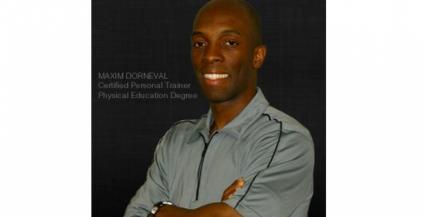Instead of thinking weight loss, think progress!
Think developing muscles, increasing endurance or speed. Create smaller goals that you can achieve.
When you’re at the gym, you’re not “losing weight”. Yes – you are burning calories, and, depending on your calorie intake, that could have an immediate effect on your weight loss goals. However, long-term weight loss is an eventual by-product, a final outcome of repeated and sustained efforts at the gym (and proper nutrition). This means, if your day-to-day focus remains on weight loss, you will more often than not experience disappointment, defeat and demotivation. If the way you measure success at the end of each workout is by stepping on the scales, you could find yourself working out less and less.
The larger, wilder beast in the brain, the part that seeks instant gratification, easily overcomes its ‘handler’, the part of the brain that allows us to persevere towards a long-term goal. Why workout for a reward that is weeks away when there are so many other things you can do (or eat!) that bring immediate satisfaction?
The key to taming this beast is to identify goals that are more immediately measurable, providing the instant gratification it needs. Achieving success in this series of immediate goals greatly increases the likelihood of successfully sustaining your efforts and reaching your ultimate goal. This is because success and achievement release ‘happy’ chemicals into your brain, giving you a positive experience and making it much more likely that you will seek out that experience again. The wild beast is happy and the handler maintains control.
What kinds of immediate goals are we talking about?
Ideal workout goals target improvement in areas you can measure on a workout to workout basis. It’s all about focusing on progress – that is, being able to do slightly more than you could before.
For example, focus on muscle development. That is, being able to lift, press, push or pull more weight than last time, or for more repetitions. This can be within the one workout as well as from workout to workout.
For a beginner this might start with:
Learn and master 4 or 5 basic, bread-and-butter exercises. If at the end of the your first training session you can say you now know how to squat, lunge, bench press, military press and crunch with proper form, you have been successful.
Add some weight to these basic exercises and/or increase the number you do. Keep track of what you do, and aim to do a little more (weight or repetitions) in your next workout. Every time you increase what you do, you are not only challenging and developing your muscles, but you are satisfying your brain’s need to feel success through progress.
How does this contribute to weight loss?
Pushing muscles to their limits causes minor tears in the fibers, forcing them to repair on your rest days. Repairing muscle = energy consumption = burning calories = eventual weight loss. Also, and this is where the real secret to long-term healthy weight achievement lies, stronger or larger muscles burn more calories at rest. As you work out, you are challenging your muscles and causing them to develop – in size and/or strength and/or power – and they begin to demand more energy of your Healthy Body, even when they are NOT being actively used. Over time, not only is there less energy available for fat storage, but fat cells begin to surrender the energy they have hoarded.
So why not make today the day you get back on the weight-loss horse? Seize control of the reins by putting some of these ideas into practice and let us know how it turns out!



